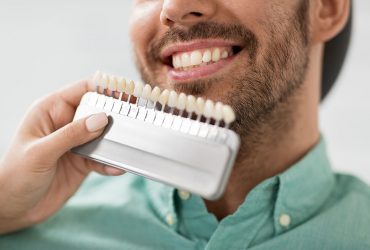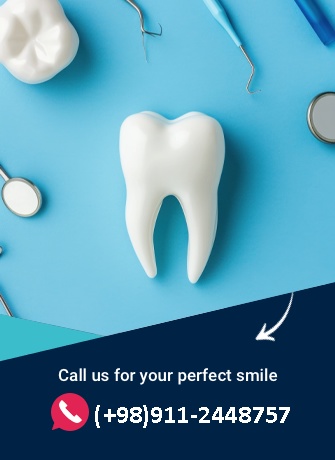Sometimes this dental treatment is also called dental brosage. This treatment, which is a type of deep tooth cleaning, is one of the dental services that removes plaque and calculus (tartar) found above and below the gum line.

Causes of plaque formation on teeth
Brushing incorrectly and only once a day
Not flossing and not using mouthwash
Excessive consumption of sweet and sticky food
Not using toothpaste
Not going to the dentist for a teeth checkup
smoking
Not performing orthodontic treatment if needed
Benefits of dental scaling
Prevention of tooth decay and worm infestation
Prevention of gum diseases
Prevent periodental disease
Removing stains on the teeth
Prevent bad breath
Improving the beauty of teeth
Common questions
01. Is it possible to remove dental plaque with baking soda?
Yes, you can use baking soda instead of toothpaste the next time you want to brush your teeth. Brushing your teeth with baking soda a few times a week helps a lot in killing bacteria. This natural cleaner should be left on your teeth for about 15 minutes after regular brushing to be more effective in removing plaque, whitening teeth and deodorizing your mouth. Of course, excessive use of baking soda is not recommended.
02. Does scaling make teeth sensitive?
Usually, scaling causes the teeth to be temporarily sensitive to hot and cold foods. But this is normal and will disappear after one to two weeks. The main cause of tooth sensitivity is that during brossage, the gum is pulled back and the underlying root of the tooth is exposed. If you experience tooth sensitivity after scaling, avoid eating very cold and hot foods and drinks for a few days. Drinking through a straw can also help reduce this sensitivity.
03. Does tooth scaling hurt?
Since local anesthesia is used before massaging, you will not experience any pain. You may experience some pain or discomfort after the anesthesia wears off, which is completely normal. If you experience toothache after scaling, use painkillers.
04. Is it possible to remove dental plaque with a laser?
Yes, dentists can use lasers to facilitate scaling and root planing. The dental laser can be used to remove inflamed gum tissue and access the tooth root. In this situation, the dentist uses a laser along with a scaling tool to clean the surface of the teeth and clean the gum pockets.
05. Does scaling cause loss of tooth enamel?
Damage to tooth enamel by scaling is a misconception that is ingrained in the public mind. Scaling does not harm tooth enamel! This method safely removes plaque and bacteria that have accumulated over time on the teeth and under the gums.
06. Is there a problem with using anti-tartar toothpaste?
If you use anti-plaque toothpaste frequently or if you choose the wrong product, it can damage your teeth. To choose the right toothpaste, when shopping, check the Relative Dentin Abrasion (RDA) rating on the product, which refers to how abrasive the toothpaste is. If the product's RDA is less than 250, it is safe to use. Toothpaste with a higher RDA may be too abrasive for your teeth and lead to enamel damage.
07. Is it normal to feel loose teeth after scaling?
You may feel that your teeth are loose after scaling. This feeling is completely normal because the tartar is firmly attached around the teeth and when it is removed, the teeth feel loose. After a few weeks, when the gums have healed, you will notice that your teeth have become harder and attached to the gums. To better understand this, think of tartar as a jacket that covers your teeth.
08. Is scaling good for teeth or not?
It is a misconception that scaling is bad for teeth. Scaling has many long-term effects and plays an important role in oral health. Scaling prolongs the life of teeth and prevents you from having problems related to teeth. In addition, tooth brushing is a completely safe method that helps save money. Since this treatment prevents tooth decay, you will no longer need to pay exorbitant fees for tooth filling and restoration.
09. How long does tooth scaling take?
Depending on the amount of tartar and plaque accumulated on the teeth, the tooth scaling process usually takes from 30 minutes to an hour. But if you don't have any oral and dental problems and your teeth are in good condition, the dentist can scale your teeth in just a few minutes.
10. Does scaling cause teeth whitening?
The scaling process removes deposits on the teeth (including external stains). Scaling does not improve the natural color of your teeth. For example, if your teeth are naturally yellow, scaling cannot give you white teeth. If there are many stains on the outer surface of the teeth, the teeth will appear lighter after scaling.
11. Can laminate and composite teeth be scaled?
Bleaching treatments and scaling methods do not work on porcelain or most bonding materials; Therefore, after placing the cover, laminate, composite and crown in your mouth, scaling is not possible. In addition, scaling of artificial teeth and implants is not possible. In dental laminates, porcelain veneers usually show a very high resistance to stains, and regardless of what foods and drinks you expose them to, they will not change color. Composite and other prostheses that are not made of porcelain may stain and yellow depending on the porosity of the material. Plastic dentures also darken over time, but the dentist can return them to their original color with a simple polishing.
12. Can orthodontic teeth be scaled?
Scaling of orthodontic teeth is not only possible but also very necessary. When you wear orthodontic braces, it's much easier for plaque, tartar, and food residue to collect around the brackets, increasing the risk of tooth decay and gum disease. In this situation, sometimes toothbrushes and dental floss are not able to completely clean these crimes; Therefore, you should pay more attention to the hygiene of your mouth and teeth. Patients who have orthodontics should visit the dentist at shorter intervals because their teeth are more susceptible to damage. It is recommended that these patients visit for dental brushing once every 3 months.








